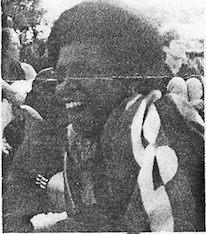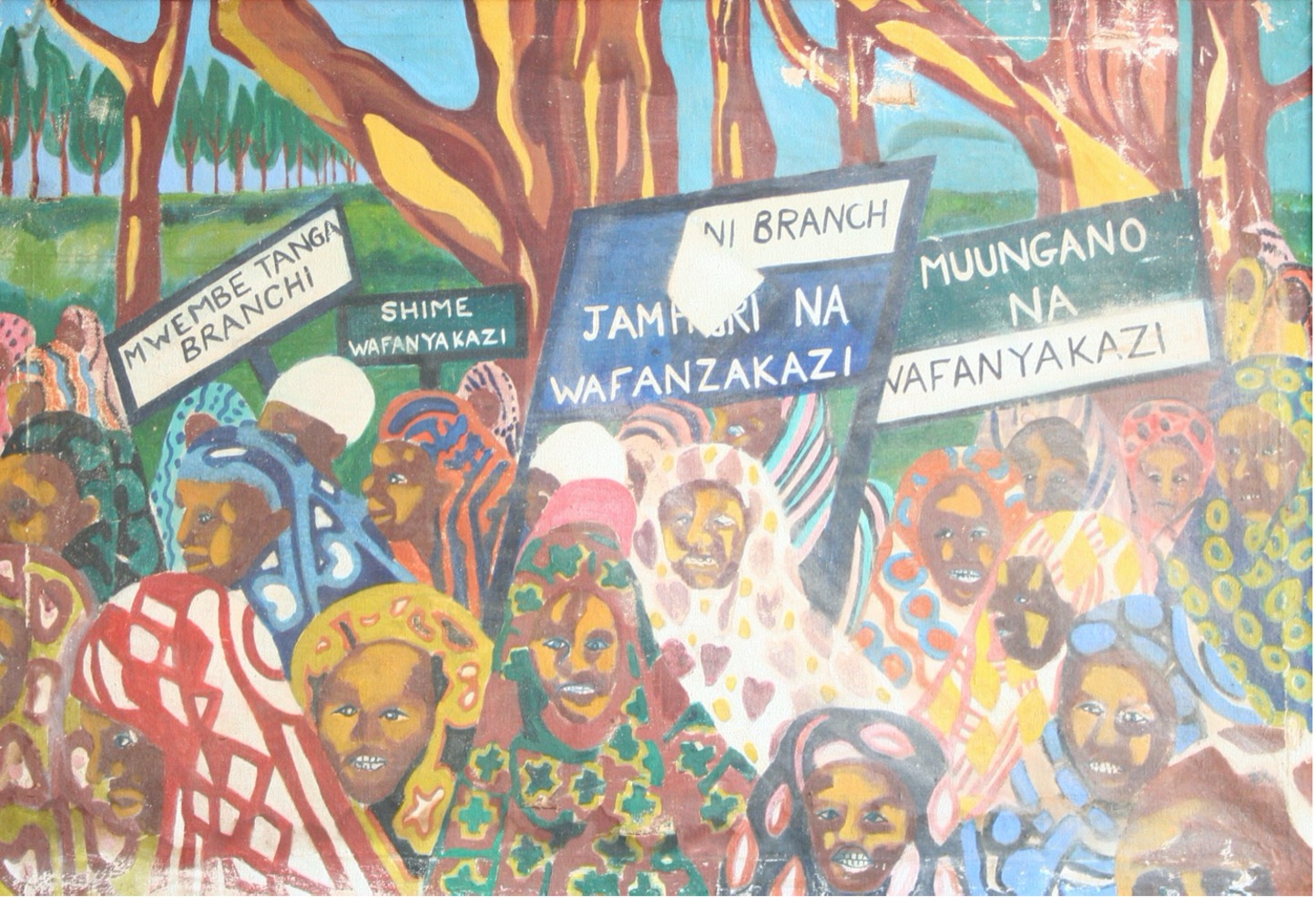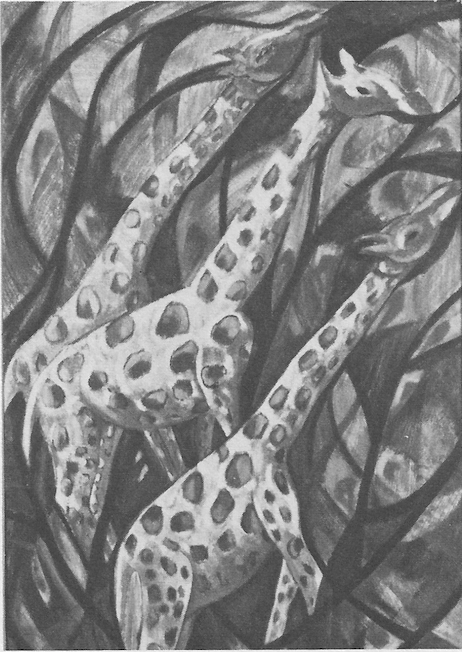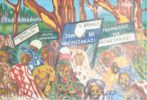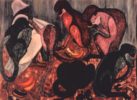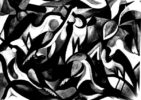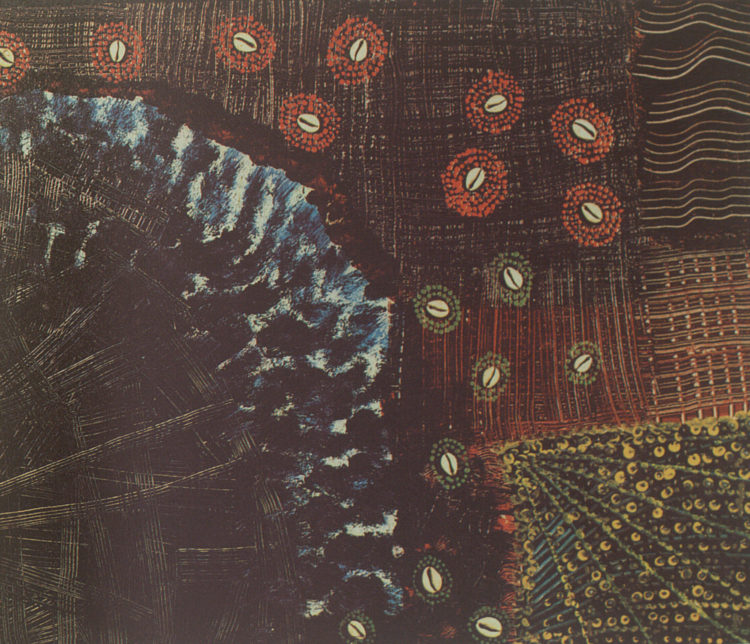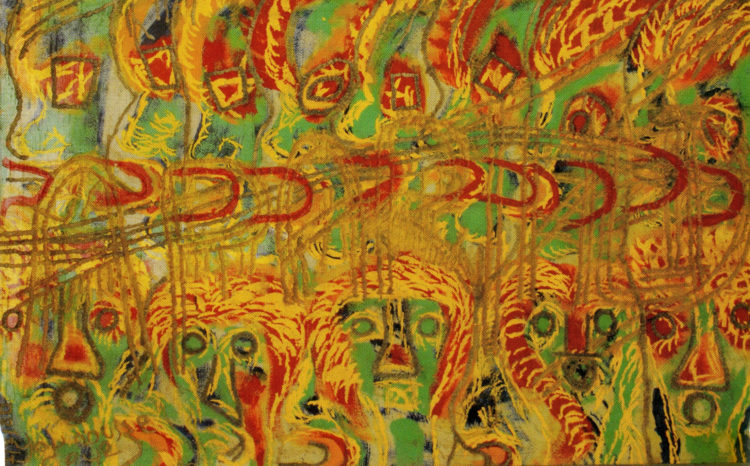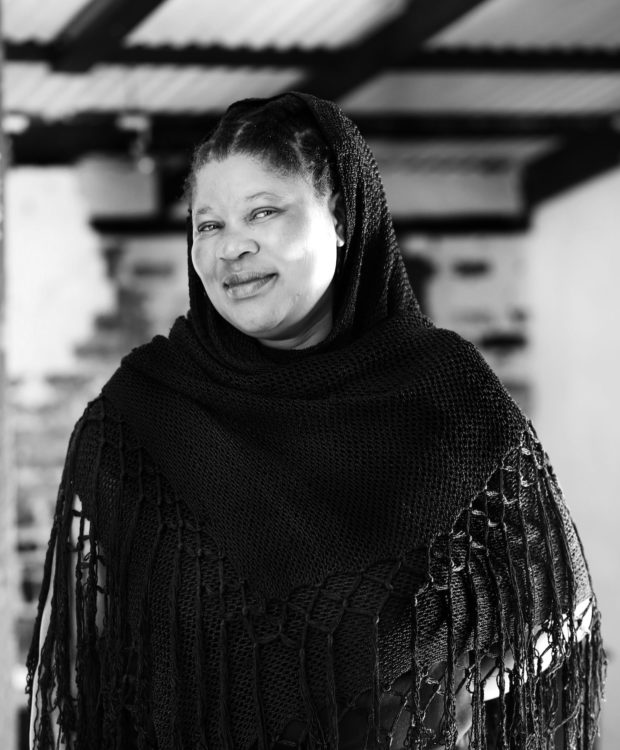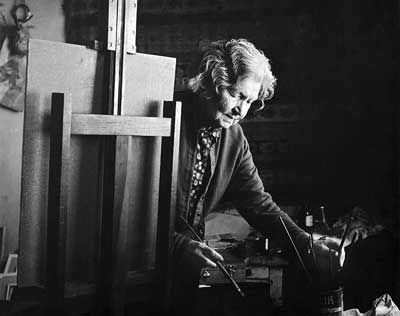Fatma Shaaban Abdalla Abubakar
D. Miller, Judith von, Art in East Africa: A Guide to Contemporary Art, Londres, F. Muller, 1975.
→East African Institute of Social and Cultural Affairs, East Africa’s Cultural Heritage, Nairobi, East African Publishing House, 1966.
→Transition Magazine, no 9, Kampala, June 1963.
Union Carbide Building, New York, USA, 1969.
→Nommo Gallery, Kampala, Uganda, 1965.
Zanzibari Painter.
Fatma Shaaban Abdalla Abubakar, also written Fatma Abdullah, was born in Zanzibar in 1939. Her father, Shaaban Abdalla, played in the Ikhwan Safaa, which is considered the oldest and greatest taarab band in East Africa. She attended the Women’s Teacher Training College in Zanzibar in 1959 and later joined Makerere School of Fine Arts during the period 1959–64, where she was awarded a first-class Diploma, as well as the Margaret Trowell Prize in 1960. She did her post-graduate studies at the University of Dar es Salaam and City University, London. She worked as a Tutor of Art and Visual Aids, and later as Assistant Principal at the Nkrumah Teachers’ Training College in Zanzibar from 1964 to the 1970s. Eventually she was attached to the Ministry of Education and Culture, where she worked as Director of the Department of Arts and Museums. Here, she engaged in promoting Zanzibari culture, including organising exhibitions of Zanzibari artists abroad, most notably the touring Kanga Textiles Exhibition. She exhibited at Nommo Gallery, Kampala in 1965, Union Carbide Building, New York in 1969, and also in London, Berlin and West Africa. She was a member of the Tanzania Arts Society. In 1985, she managed a Zanzibari national taarab musical group on their debut tour in Europe.
Despite F. Abdalla Abubakar’s career being punctuated by a good education and prestigious jobs, very little is known about her practice or the whereabouts of her works. Her change of name when she got married in the 1960s and her move abroad could be reasons for this erasure. The few works accessed at the time of writing this biography illustrate multimedia depictions of either people or wildlife in bright colour palettes. F. Abdalla Abubakar’s interest in the human body and animal life is an aspect typical of several other artists who graduated from the Makerere School of Fine Arts, but these works show her subjects in a style combining flamboyance and motion. In Revolutionary Spirit (circa 1960), the artist paints a crowd of people, mostly women, taking to the streets of Zanzibar to protest about workers’ rights while demonstrating solidarity and union with workers.
In 1986, she was appointed as the third Minister Counsellor at the Tanzania High Commission in London. She died in London on 14 January 1994, just weeks after being appointed to a position of ambassadorial rank, as head of the Zanzibar wing of the Tanzanian Foreign Office.
A biography produced as part of the project Tracing a Decade: Women Artists of the 1960s in Africa, in collaboration with the Njabala Foundation
© Archives of Women Artists, Research and Exhibitions, 2024


